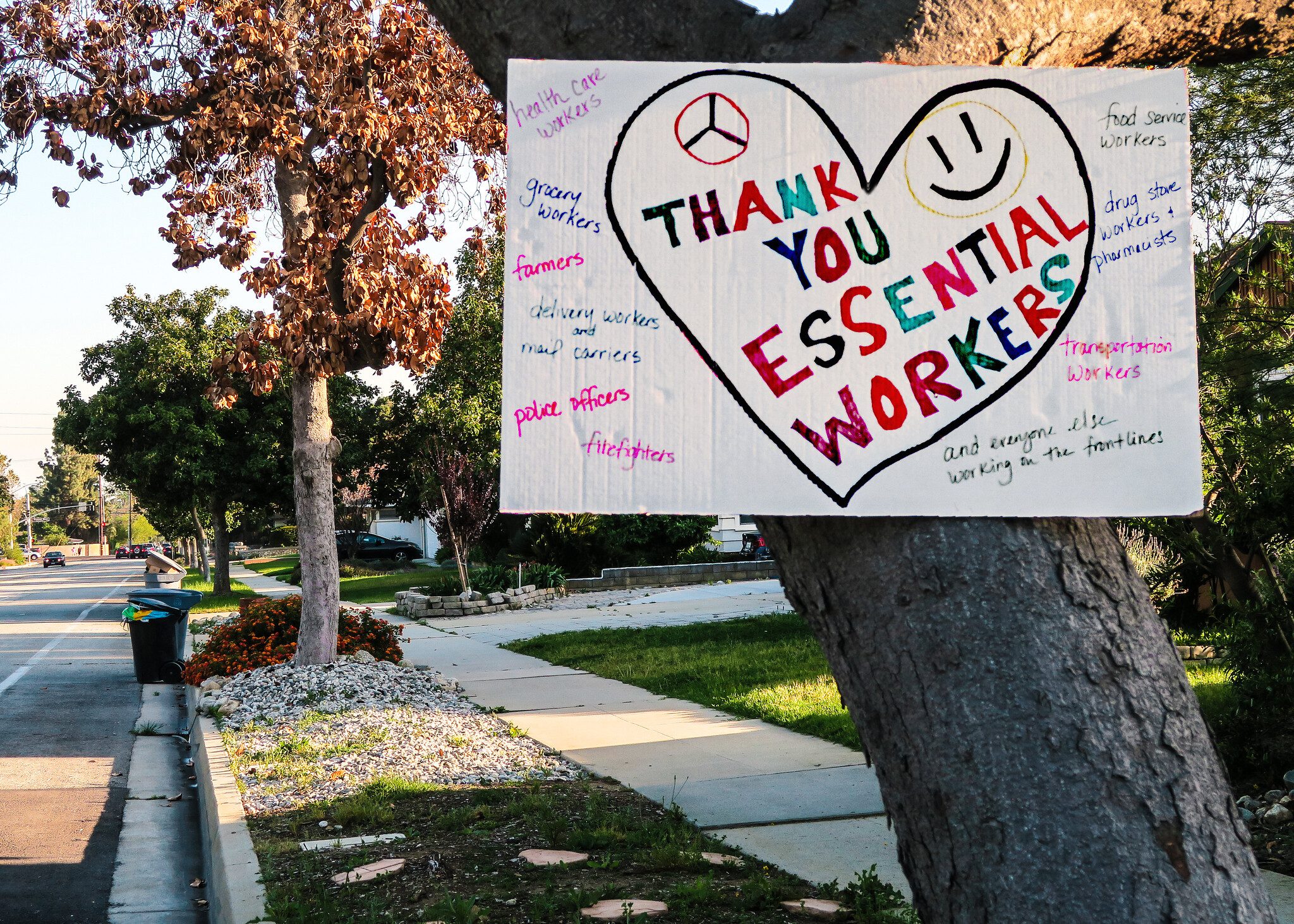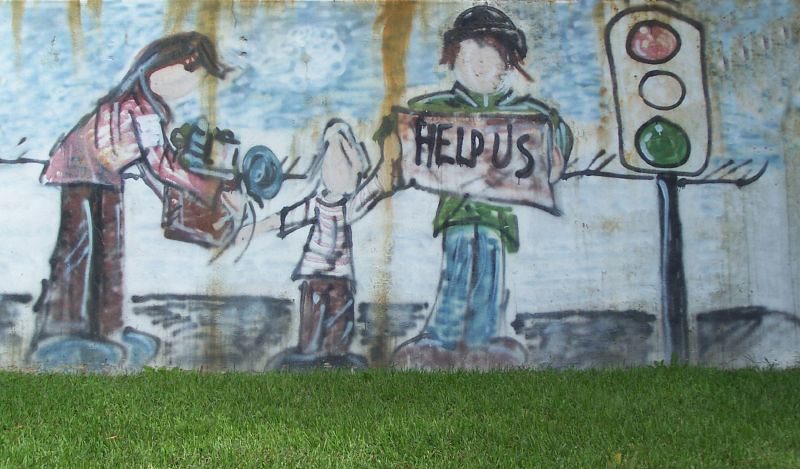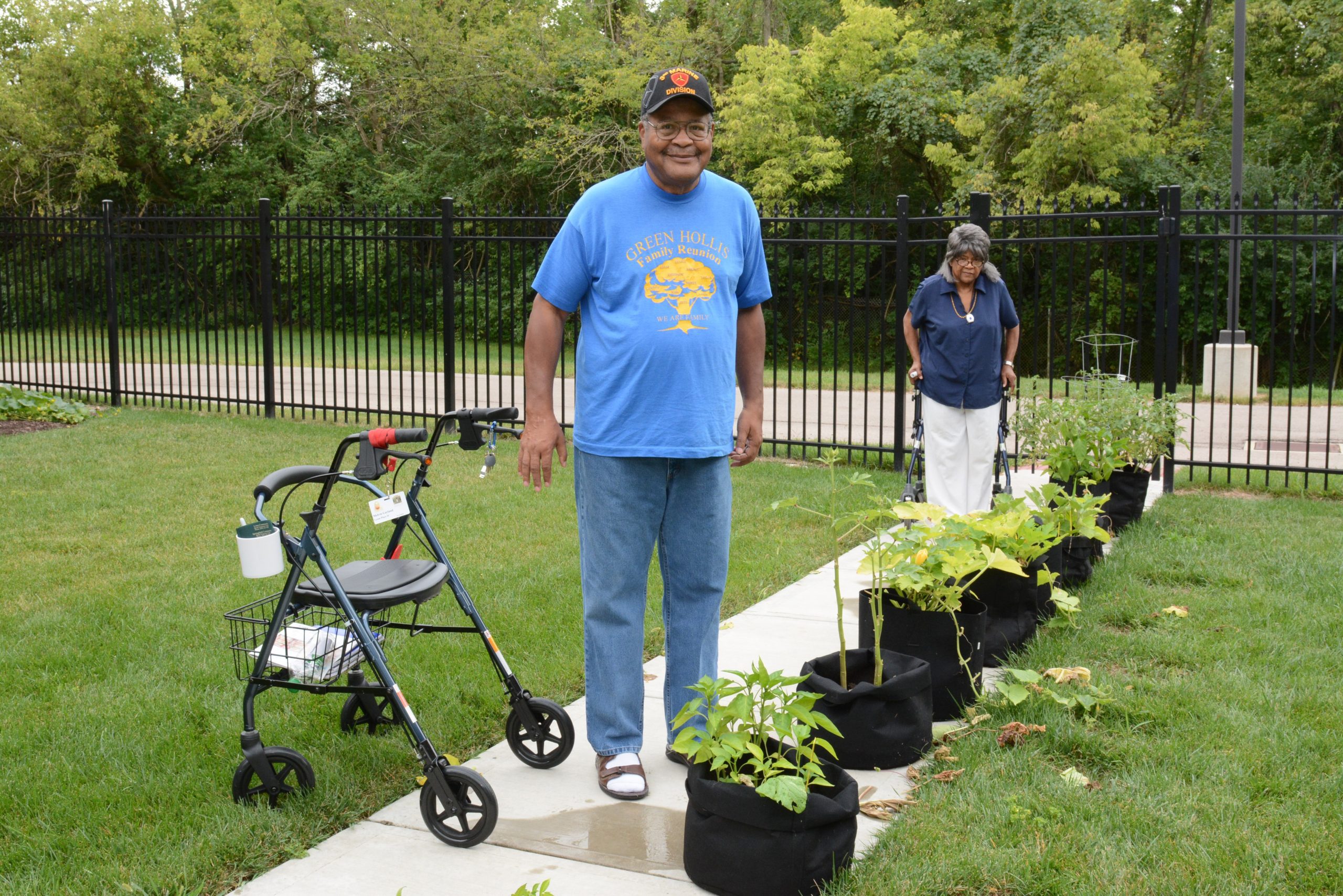
Photo via Shutterstock user Golden Shrimp
The COVID-19 crisis has laid bare the inequalities in our communities as never before. Low-income households, low-wage workers, and those who are housing insecure are bearing the brunt of the danger.
It has also highlighted the role of “essential workers” in keeping us healthy, fed, and safe. But those essential workers are often the same community members whose “American dreams” have been thwarted by subpar wages, financial exploitation, and discriminatory policies and sentiments.
An essential worker is the person helping you with your groceries, the person caring for you in your hospital room, the person making sure you have a clean hotel room to sleep in after a long day, the person disposing of your trash, the person providing you with critical medications, the person caring for your elderly relative, and the person delivering food to your doorstep.
These are just a few of the faces of the essential workers risking their lives on the front lines to care for you while seeking a better quality of life for their family through stable housing.
I dedicate my days to providing in-home care to people with physical and cognitive disabilities. I know that each day I enter a home, I’m putting myself at risk, but I also know that my work is critical to providing a sense of normalcy and well-being for the people I care for. It is essential and I’m honored to do the work I do.
Thankfully, after my long days, I’m able to retreat to a safe home in a well-resourced community that allows me a place to rest and recharge. That’s because, like many essential workers, I am lucky enough to be a recipient of a Housing Choice Voucher (Section 8). Because I am a voucher recipient, my family benefits from stable housing. This would be difficult to achieve with my wages alone, especially with several affordable housing wait lists closed across the region.
Essential Workers With No Safety Net
But for many essential workers, housing stability is not a reality.
The 2012-2016 HUD Comprehensive Housing Affordability Strategy data show that more than half of Baltimore renters have housing challenges, the single largest being cost burden. More than one in four Baltimore renter households is both extremely low-income (meaning earning below 30 percent of the area median income) and cost burdened (paying more than 30 percent of their income on housing). Nationally, only one in five households eligible for a housing voucher receives one.
Those are statistics under “normal” circumstances, but with record levels of unemployment being recorded across the country right now, the need for housing assistance will drastically increase.
The Baltimore Regional Housing Partnership (BRHP), a nonprofit that I serve as a board member and program participant, administers federal housing vouchers throughout the Baltimore region, and provides housing mobility counseling to the over 4,300 families who have those vouchers. Many of these families are losing income and jobs right now, but through their vouchers and our counseling are able to maintain their housing during this crisis. But the supply of vouchers does not meet the demand. There are over 14,000 families on BRHP’s waitlist who would qualify for a voucher if federal or local governments fully funded the program. This waitlist has been closed for two years.
Nationally, the average wait time for a voucher is over three years. Those who are waiting are overwhelmingly seniors, people with disabilities, or families with children.
Some of these families are my friends, my kids’ classmates, and my co-workers.
Due to the widespread loss of income and jobs, many are unable to pay their rent or other bills. They are worrying about future back payments and being left in a hole. Some of these families have been living paycheck to paycheck without the ability to save. Any additional money they earn has to go to care for their children. Some families are taking money out of their 40l(k) plans or borrowing from friends or family to make ends meet. Some are going without. They are afraid.
Others live in shelters and cannot properly socially distance due to the unclean and overcrowded conditions. And when you are immunocompromised, the risks are even greater. They are afraid.
I have friends who are getting letters threatening eviction once the courts reopen. They are afraid.
Others are parents who fear their children aren’t retaining the information they’re learning remotely, particularly when those parents have to work outside of the home. How will their kids progress to the next grade if they aren’t learning what they need to learn today? For parents of students with special needs, remote learning can be especially challenging due to the lack of one-on-one connection and guidance. Their school districts are overwhelmed. They are afraid.
Our leaders need to be thoughtful about the actions they take now, thinking of the families who are struggling the most, in order for us all to come out of this stronger as a community.
That stronger community will require housing as the foundation.
What We Need
We need immediate investment in federal housing assistance like we have never seen before to address our current reality and ensure housing stability in the long term. Being unsheltered is finally being seen as a public health threat. It is time that we shift to treating housing as health care and make sure that a quality place to call home and robust, affordable health care are extended to everyone. They are essential.
For millions of families currently waiting for vouchers and the millions more who will need them, this will look like expanding the Housing Choice Voucher program as a fully funded entitlement for every eligible adult.
It will look like passing the bipartisan Family Stability and Opportunity Vouchers Act, which will create an additional 500,000 housing vouchers over five years specifically designed for low-income families with young children to expand their access to neighborhoods of opportunity with high-performing schools, strong job prospects, and other resources.
It will look like investing in local programs that couple health care provider referrals with housing mobility counseling to help families transition to healthier home environments where their health will improve gain improved health outcomes.
We need to create a simplified and regional approach to serve renters, particularly those whose employers do not pay adequate wages to cover real life expenses. Making the Housing Choice Voucher Program a fully funded entitlement for every eligible adult, and creating a streamlined approach to easily assist these renters and owners from whom they rent provides stability for families and wider communities. In times of crisis, like now, and beyond this will ensure owners can keep up with property maintenance and mortgage payments to lenders and no one is left homeless.
We know that educational disparities impact students of color and low-income students the most and that to combat this disparity it takes investment in both place-based work and mobility to opportunity work like that of the Housing Choice Voucher Program to ensure these students have access to a quality education. As we’ve seen during the COVID-19 crisis, some schools were more prepared to adapt to distance learning, because they had made early investments, while some high-need schools were less likely to have had that preparation. All students deserve an investment in their education and in our current reality, the solution is in increased funding to high-risk schools and programs and policy that allow allowing families the opportunity to live closer to schools of their choice.
I’m a voucher recipient and an advocate for housing equity. It’s time that our leaders begin to listen to those of us—the essential workers—who have lived the struggle, know the struggle, and who have overcome the struggle of being housing insecure through rental assistance and housing search support.
Housing is the foundation for health, well-being, education, and economic stability—factors that are at risk for us all right now.
The investments we make in housing security and equity today will create the resilient communities we need for a healthier and stronger country tomorrow.






I agree that expanded federal programming for housing is needed and necessary, but it will not fix the problem. Vouchers are useless unless they are used. Too many times we see people who are sitting on a wait list for a voucher, get one, only to find that they cannot find an apartment that is decent, safe, sanitary, and affordable within the time limit they have to action the voucher. Local laws need to be overturned that allow landlords to reject vouchers simply because they don’t want “those kinds of people” in a unit. Zoning law and local governmental regulations that restrict where and what type of housing can be allowed must also be addressed. Yes these are local issues but as the late Speaker of the House of Representatives Tip O’Neil once said “All Politics is Local.” What is needed in addition to expansion of the housing voucher system, is a way to tie federal assistance to the cities and states to housing policy investment. Until then, while more vouchers are needed, the long term result for many of those potential new vouchers is non use for lack of available housing, and after waiting on a list for years, that is a tragedy,that is certainly more devastating and demoralizing to the holder than the long wait on a list was.
BRHP’s success rate (i.e. lease up rate) is about 90% in an area that until 2020 did not have Source of Income protections. With mobility counseling and neighborhood based payment standards, success rates could be much higher in the vast majority of markets.
There is no single answer, of course, but housing vouchers are especially valuable because they can be tenant or project-based and the funding pays for operating costs as well as debt service on capital costs.